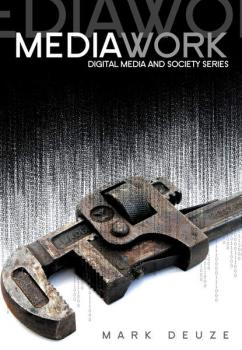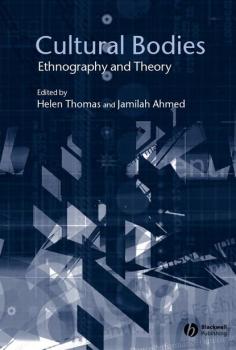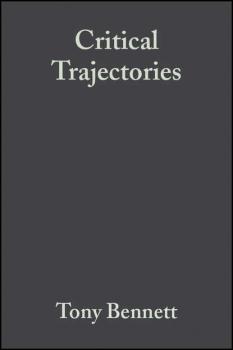MREADZ.COM - много разных книг на любой вкус
Скачивание или чтение онлайн электронных книг.Media Work
The media are home to an eclectic bunch of people. This book is about who they are, what they do, and what their work means to them. Based on interviews with media professionals in the United States, New Zealand, South Africa, and The Netherlands, and drawing from both scholarly and professional literatures in a wide variety of disciplines, it offers an account of what it is like to work in the media today. Media professionals face tough choices. Boundaries are drawn and erased: between commerce and creativity, between individualism and teamwork, between security and independence. Digital media supercharge these dilemmas, as industries merge and media converge, as audiences become co-creators of content online. The media industries are the pioneers of the digital age. This book is a critical primer on how media workers manage to survive, and is essential reading for anyone considering a career in the media, or who wishes to understand how the media are made.
Bob Marley
Is Bob Marley the only third world superstar? How did he achieve this unique status? In this captivating new study of one of the most influential musicians of the twentieth century, Jason Toynbee sheds new light on issues such as Marley’s contribution as a musician and public intellectual, how he was granted access to the global media system, and what his music means in cultural and political terms. Tracing Marley’s life and work from Jamaica to the world stage, Toynbee suggests that we need to understand Marley first and foremost as a ‘social author’. Trained in the co-operative yet also highly competitive musical laboratory of downtown Kingston, Marley went on to translate reggae into a successful international style. His crowning achievement was to mix postcolonial anger and hope with Jamaican textures and beats to produce the first world music. However the period since his death has been marked by brutal and intensifying inequality in the capitalist world system. There is an urgent need, then, to reconsider the nature of his legacy. Toynbee does this in the concluding chapters, weighing Marley’s impact as advocate of human emancipation against his marginalisation as a ‘Natural Mystic’ and pretext for disengagement from radical politics.
Cultural Bodies
Cultural Bodies: Ethnography and Theory is a unique collection that integrates two increasingly key areas of social and cultural research: the body and ethnography. Breaks new ground in an area of study that continues to be a central theme of debate and research across the humanities and social sciences Draws on ethnography as a useful means of exploring our everyday social and cultural environments Constitutes an important step in developing two key areas of study, the body and ethnography, and the relationship between them Brings together an international and multi-disciplinary team of scholars
Cultural Globalization
Cultural Globalization: A User’s Guide is a personal and engaging journey through theories of culture and globalization. Drawing on extensive examples and interdisciplinary research, Wise explores concepts of culture, territory and identity in order to give students a new perspective on issues of globalization. Includes numerous examples from Asian, European, and North American youth culture and popular music Draws on interdisciplinary research from the fields of anthropology, cultural studies, cultural geography, and media studies Considers how global processes carry with them the ethical questions of how to act in the world and how to care for others Provides an original and stimulating overview of theories of culture and globalization, encouraging students think more broadly about the key issues
Critical Trajectories
Critical Trajectories: Culture, Society, Intellectuals brings together for the first time writings from one of the leading figures in cultural studies – Tony Bennett. The selections in the volume span the period from the late 1970s to the present, representing issues of enduring concern in Bennett's work over this period and throughout his wide-ranging intellectual career. Charts the extensive influence of Bennett’s thinking across the humanities and social sciences – from cultural history to museums and memory, and from Bond and popular culture to cultural policy and governance Tackles some of the most important subjects in cultural studies, including aesthetics, textuality, the intellectual, and the role of cultural history Includes a new introductory essay pinpointing Bennett’s concerns in changing intellectual and political contexts
Negotiating Identity
Identity is never just an individual matter; it is intricately shaped by our experiences of social life. Taking a Symbolic Interactionist approach, and drawing on Goffman’s dramaturgical theory, Susie Scott explores the micro-social processes of interaction through which identities are created, maintained, challenged and reinvented. With a focus on empirical studies as illustrations, classic sociological theory is applied to contemporary examples. Each chapter focuses on a key dimension of how identities are negotiated in the drama of everyday life, from politeness and face-saving rituals to secrecy, lies and deception. Goffman’s ideas are explored in relation to self-presentation, role-making, group interaction and public behaviour, while language and discourse are shown to help people to give credible identity performances and to frame social situations. The book reveals how social selves change over the life course through stigma, labelling and deviant careers, and how life in a total institution can radically transform its members' identities. Through all of these processes, self and society are shown to be intertwined. This insightful approach will appeal to students taking a range of courses in the sociology of the self, identity, interaction and everyday life
Invented Moralities
This is an important intervention in debates on the family and sexuality, exploring clashes over sexual values and contemporary sexual dilemmas such as AIDS.
Engendering Modernity
In this book Barbara Marshall argues that the debates around both modernity and postmodernity neglect the role of women and significance of gender in the formation of contemporary societies.
Worlds Between
This book presents a series of pioneering studies which together constitute a reappraisal of our understanding of the relationship between gender and history.
Identifying Citizens
New ID card systems are proliferating around the world. These may use digitized fingerprints or photos, may be contactless, using a scanner, and above all, may rely on computerized registries of personal information. In this timely new contribution, David Lyon argues that such IDs represent a fresh phase in the long-term attempts of modern states to find stable ways of identifying citizens. New ID systems are “new” because they are high-tech. But their newness is also seen crucially in the ways that they contribute to new means of governance. The rise of e-Government and global mobility along with the aftermath of 9/11 and fears of identity theft are propelling the trend towards new ID systems. This is further lubricated by high technology companies seeking lucrative procurements, giving stakes in identification practices to agencies additional to nation-states, particularly technical and commercial ones. While the claims made for new IDs focus on security, efficiency and convenience, each proposal is also controversial. Fears of privacy-loss, limits to liberty, government control, and even of totalitarian tendencies are expressed by critics. This book takes an historical, comparative and sociological look at citizen-identification, and new ID cards in particular. It concludes that their widespread use is both likely and, without some strong safeguards, troublesome, though not necessarily for the reasons most popularly proposed. Arguing that new IDs demand new approaches to identification practices given their potential for undermining trust and contributing to social exclusion, David Lyon provides the clearest overview of this topical area to date.









